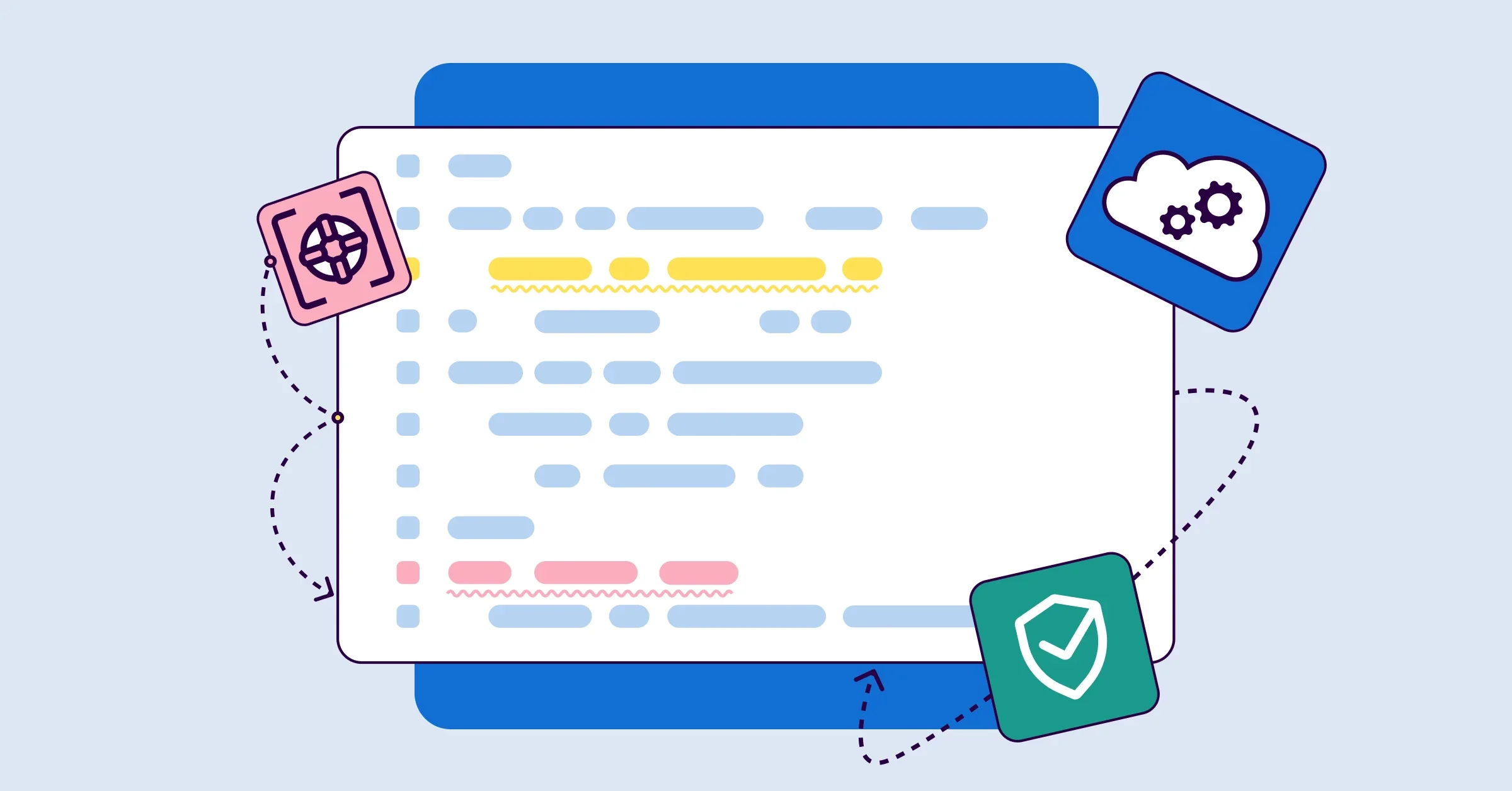What does a Support Engineer do and how could it ever be interesting? If you’re curious about the life of a Support Engineer, whether you have read the job description or not, then join me as I share my unique and rewarding journey in this role at Sonar that will help you understand more about the job and my transition into a one-of-a-kind, nonpareil opportunity in my life (my opinion, of course).
I’m a former dev bootcamp graduate of MakerSquare back in 2014, then I worked at a fintech company and immediately thereafter as a software developer. I enjoyed the development process: given some requirements, go build this thing, test it, then release it *wipes hands*. However, after some time, the routine of creating yet another API plumbing job didn’t satisfy my desire to learn.
This Is Not Your Typical Support Engineer Role
Let’s be honest, the role of “Support Engineer” can be a tough sell.
“So what? It’s just some support desk job. You answer some tickets, you tell the devs to go fix bugs, you tell the product managers to add a feature, and meet the SLA… YAWN”
For many, the word “support” evokes images of call-centers, quotas, ever-tightening SLAs and evening/weekend shifts. It’s seen as entry-level work--a gateway to other, more dignified roles. It’s a stigma that is all too easy to internalize.
As a former software developer implementing features and architecting microservices and cloud deployments, I had those same thoughts when I first heard about the Sonar Support Engineer role.
“Support” You mean like... not be at the front lines of development and just help customers? How is that exciting? How do I grow from creating and building things to just being an abutment to the company?”
Sure, those are acceptable reactions to some support desk jobs. There’s a certain routine and rigamarole that these jobs have, but there’s always a reason people like these jobs: using software you like, the chance to help people, working with people who have similar interests and intentions as you do, freedom to learn what you want, etc. Support jobs are fun for these reasons, but their drawbacks also make people shy away from them. At Sonar, we keep the interesting parts of support AND we do it differently.
Being several years into my journey at Sonar as a support engineer, I want to tell you the role has been worth it and why I gave up my developer lifestyle for a support role.
What does Support at Sonar look like?
- We are not merely a human face to documentation. We provide education of the platform as well as expertise.
- We are fair to customers and we are the customer’s advocate when discussing feature changes and product evolution with a transparent and honest voice.
- We aim to nurture a long-term relationship that allows customers to be self-driven experts of their own platform.
- We assign tickets to ourselves -- either because we are interested in the topic, are an expert, or want to learn more by doing.
- Our goal is to get all customers an initial answer to their questions within 1 business day.
- The vast majority of our interactions with customers take place using ServiceDesk, rather than jumping into troubleshooting calls.
All of this and more can be referenced by our Sonar support philosophy.
We Answer All Sorts of Questions
As a Support Engineer at Sonar, a significant part of my day revolves around helping users navigate the powerful capabilities of SonarQube, our core product for continuous code quality and security. It comes in a range of deployments: SonarQube Server for self-managed, on-premise solutions, SonarQube Cloud for a hassle-free, cloud-based experience, and SonarQube for IDE, which integrates directly into development environments for real-time feedback.
In a given day at Sonar, you might find yourself answering these questions:
- SonarQube Server is unable to get in touch with Bitbucket Cloud for Pull Request Decoration
- After upgrading, authentication via SAML is giving an error
- SonarQube Cloud failed to parse my Ansible code
- How do I exclude files from analysis?
- I want to plan my upgrade to the latest version of SonarQube Server
- How do I set up SonarQube Server to run over HTTPS?
- What can I do to decrease the amount of time it takes to analyze my code?
- A false-positive is being raised on my project. Why?
- How do I make it easier for my developers to start using SonarQube?
Code Quality and DevOps Is Our Playground
At Sonar, a Support Engineer will learn about (and support customers on) the following topics:
- Programming languages (Java, C#, Go, C or any of the 35 languages we support and soon more)
- Security and static code analysis (control flow graph technology, taint analysis, etc.)
- Any CI/CD tools (Jenkins, GitHub, GitLab, Azure DevOps, TeamCity, and on and on)
- Delegated authentication methods like LDAP or SAML
- DevOps Platforms (GitHub, GitLab, Azure DevOps, Bitbucket)
- Cloud platforms (AWS, Azure DevOps, GCP)
- Containerized applications (Docker, Kubernetes, Helm)
- SCM internals (git, svn)
- Databases (Oracle, PostgreSQL, SQL Server)
- Software composition analysis (SCA)
- Enterprise-level demands and requirements like compliance, certifications, and security
SonarQube integrates with all of this and more. That’s why I enjoy this job: I get to play with all these technologies while helping people solve their problems.
I Can Make an Impact on the Product and the Company
What makes working at Sonar really interesting, aside from a unique support model? Onboarding as a support engineer was a steady, progressive process lasting a few months or so, which gave me time to soak in the unique and global work culture.
At Sonar, we believe that anyone has the power to make a change within their team, workflow, or the company, and people are empowered to take action. I certainly appreciate working at a company that supports empowerment to make change happen all the while allowing the “right to fail”. There is no hard-pressed goal to always make change, but achieving delivery of your intent is what is more valued. Challenging status-quo when sensible and always making an effort to collaborate to become “smarter together” are also important concepts I learned about Sonar work culture.
Sonar was founded in 2008 and we have now grown to over 700 employees, and so the flat organizational feel of a startup has now evolved into a team-based organization, where Support Engineers continue to instill and endure that same Sonar spirit.
Here’s what my day-to-day generally looks like, from morning to evening from the US side (in case you didn’t know, Sonar is based in Geneva, Switzerland!):
- 8:30 AM Prepare for standup (review current ticket statuses)
- 8:45 AM Global standup (review any important tickets with the team)
- 9-10 AM Attend important meetings with teammates on side projects, catch up on news on other projects, pair program on a ticket
- 10 AM-12 PM Respond to tickets, experiment new language features, explore new CI tool
- 12-1 PM Lunch
- 1-1:45 PM Continue responding to tickets, prepare for the afternoon standup with US Team
- 2-5 PM Respond to tickets, work with teammates on solving a ticket together, help/chat with community members or teammates using SonarQube for IDE/SonarQube Server/SonarQube Cloud
That’s basically it: aside from answering tickets, there’s a lot of freedom to explore new technologies, collaborate on projects to help improve the products or company workflow or work life in general, and help users in our open community forum use our products. Sonar provides SonarQube Community Build and SonarQube for IDE as open source software that is available for forking or studying, so contributing back to the community users is twice the benefit in using Sonar products.
In summary, you will enjoy Sonar and the Support Engineer job if you enjoy any of the following:
- Learning ANY of the modern technologies of an adept software developer, devops engineer, or sysadmin
- Working on projects that you choose via volunteering and affecting change that you see as important to the company
- Helping people enjoy using Sonar products while getting maximum value from them
If you find yourself nodding your head, Sonar is a great fit for you. If you want to know more, just check out our careers page!

